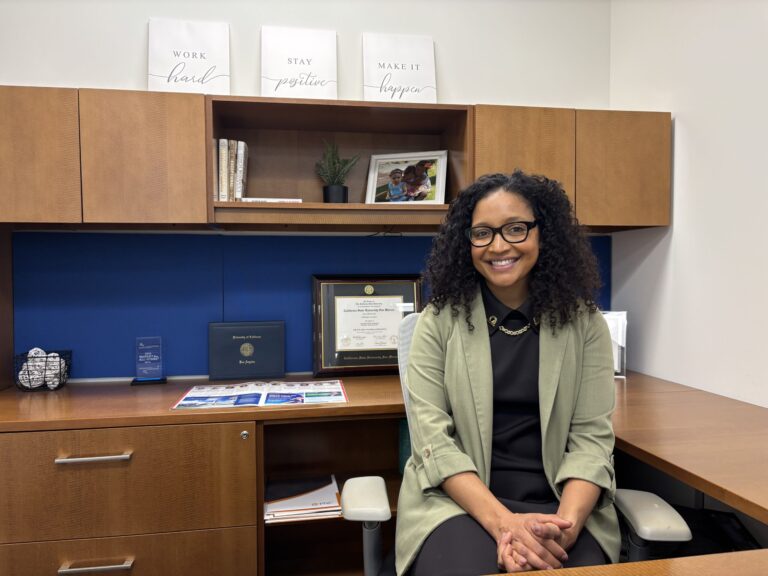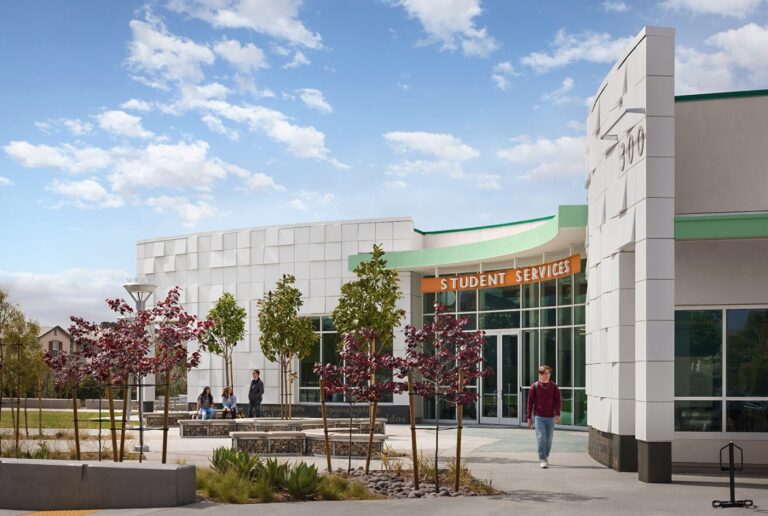By Melanie Slone
Beatriz Villarreal, Mano a Mano
760-492-8897
“Not in a million years did I ever think I’d be able to get my doctorate,” Dr. Beatriz Villarreal told North County Informador.
When she was young, Beatriz Villarreal’s dream was to start a clinic in Mexico for children with severe mental, emotional, and physical limitations. But life led her down a different path, bringing her to San Diego, where today she talks to families in the county in Spanish about the dangers of drugs and gangs.
Dr. Villarreal tells her story to the families she works with, “because I think we sometimes don’t do that with our kids. We don’t teach them to dream big.”
Thanks to her father’s support and encouragement, once she finished her master’s at University of San Diego, she was able to apply for the doctorate in Educational Leadership, with a focus on family, marriage, and child counseling, she told us.
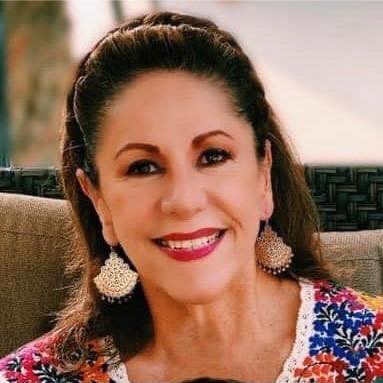
Studying to make her dreams come true
Dr. Villarreal, who is from Mexico City, where she did her undergraduate work in Special Education, told us that, “Of four brothers and sisters, I was the only one who wanted to study.”
To get her masters’ first in San Diego, she said, “It was very tough, but my whole life went into studying to be able to pass and get accepted. I was accepted at University of San Diego, where I did my master’s in Severely Handicapped, as part of Special Education.”
She wanted to do another master’s but her father told her that if she wanted to stay in the United States, she was going to do her doctorate, and he told her to believe she could do it.
She was accepted into the doctoral program with certain conditions—she had to have straight As and Bs and she had to be a full-time student; she was also the youngest member of her class, where everyone else was a director of a bank or a school.
“I didn’t have any work experience. But I was very eager to learn,” she said. Even though everyone thought she would “flunk out,” she said, “My life was dedicated to my studies.”
She recorded her classes and took plenty of notes at a time when there were no computers.
“Over time, I showed myself, my family, and the University of San Diego that, not only was I able to do it, I was the best student,” she told us.
She graduated with honors and was the first Mexican woman to get a doctorate in education from University of San Diego. When she got her diploma, the new PhD told her father, “This is your certificate. Because from this moment until the day I die, I will be Dr. Villarreal, and it’s thanks to you. Because if you hadn’t shown me that I could reach higher, I wouldn’t have done it.”
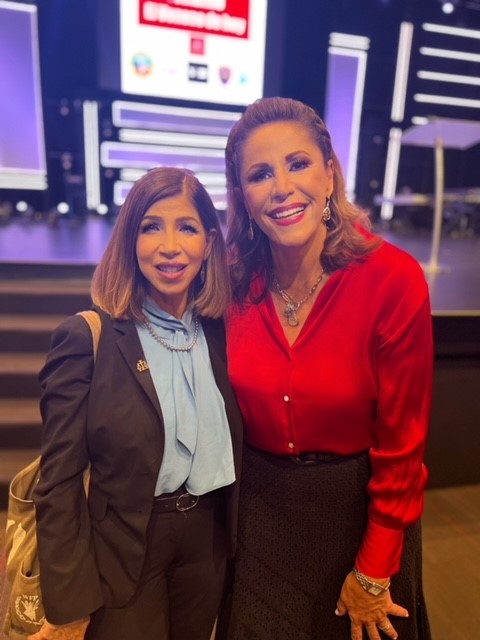
Kids Locked Up
Her plans were put aside, and Dr. Villarreal didn’t go back to Mexico to build her clinic. She stayed in San Diego, where she started a six-month pilot program at San Diego Juvenile Hall.
“My background was in special education. So, I said, okay, special education, kids with issues, kids with behavioral issues, well, maybe I can use it,” she said.
At that time, Juvenile Hall was where all kids 9 to 17 years old were sent for any problem, from playing hooky to having problems at home.
“The officers who worked in there still had the idea that punishment was best, they’re bad, right? I went in with the idea that they are children. They’re victims. We have to help them. We have to give them support. We have to educate them,” she said.
She started as a counselor and developed the Spectrum Program, “where we supported and educated the children in there.”
The program began offering the minors different services and bringing in college students in counseling to be trained, which tripled the services in Juvenile Hall.
The six-month plan turned into a seven-year program, a time Dr. Villarreal calls, “the best years of my life, the best job.”
She explained that “I met the best teachers I’ve ever had, the boys and girls in Juvenile Hall. They taught me things you can’t learn in books. You can’t go to the library and find out what a child is going through who joins a gang or is born in a gang…a child who has suffered domestic violence, or who has been treated with violence by his parents, who has lived with a mother who is a drug addict.”
Dr. Villarreal told us that these experiences made her “an expert in gangs, in juvenile delinquency” and in working with parents.
Every year she watched as the percentage of Latinos in Juvenile Hall went up. “So, I said, what am I doing in here? I can’t be in intervention…I think I need to be out there in prevention.”
Mano a Mano Foundation
Dr. Villarreal started the Mano a Mano Foundation, where she designs material to work with parents, giving them information to help them prevent their children from getting involved in the juvenile justice system.
“So, I started to work with different community agencies,” she said. Even though it was difficult at first, thanks to support from others like Anthony Ceja, at the San Diego County Office of Education, she started to win contracts with the County for a program in the school districts called Learning to Be Better Parents.
When the county realized that some 120 families showed up, she was given the green light to expand her program to other school districts.
“I was giving them up-to-date, real information, where I took testimonials from former gang members, ex drug addicts, I took the resources to the schools,” said Dr. Villarreal. She told us many parents took their kids with them, and the program turned into a family affair. “It was no longer parents learning to be better parents. It was families learning to be better families.”
She changed the name and marched on with her program for Latino families. “One thing that I think has been so successful with the program is that, number one, it’s in Spanish, and number two, it’s 100 percent culturally sensitive,” she said.
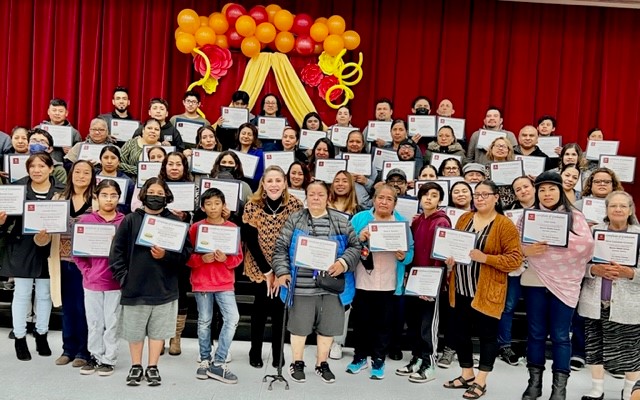
She considers the reality migrant families in the United States face and talks to them in Spanish about drugs, alcohol, gangs, and family issues.
She told us that all the families have her number and that she personally answers the phone if any family from San Ysidro to Valley Center needs resources or advice.
She said it is very gratifying to see the children grow up and come back to visit her. “It’s a blessing for me to be able to work with these families, where I’ve seen generation after generation come to my workshops.”
“I also think it’s a huge responsibility,” she said, “because very few people are really doing this from the heart and with the passion necessary to work with these families.”
Dr. Villarreal has a segment on Televisa Tijuana’s channel 12 on Tuesdays that has been on air for mor than 15 years, called More than Words. It is transmitted all over San Diego County and all of Baja California.
She also has organized a Spanish-language conference in Encinitas on education around drugs for more than 25 years, called The Truth about Drugs.
Fentanyl, the biggest danger right now
The issue of the day is fentanyl, Dr. Villarreal told us. She invites “victims who have lost their children to fentanyl.” This issue is her priority now, and she works with the district attorney’s office, the police, the sheriffs, and the Mexican Consulate, who support her in her work informing and sharing with the families, 100% in Spanish.
“They bring their children, they bring everybody, and we give them all the resources we can to prevent, educate them and, if they ever need help, they can know where to turn,” she said.
Dr. Villarreal presents everything in Spanish, but she told us that, for this work to be effective, it should be in English and Spanish, “because you have to know how to get the message across to these families…and make sure they can really speak to their children, that their kids will understand what we’re talking about,” she explained.
In May, Dr. Villarreal is organizing conferences about fentanyl in downtown San Diego, at Southwestern College, at MiraCosta College, and at One Safe Place in San Marcos. You can visit the Mano a Mano webpage for more information.
Jaime Puerta, the president of Victims of Illicit Drugs (VOID), whose son died from fentanyl poisoning, will be presenting with her.

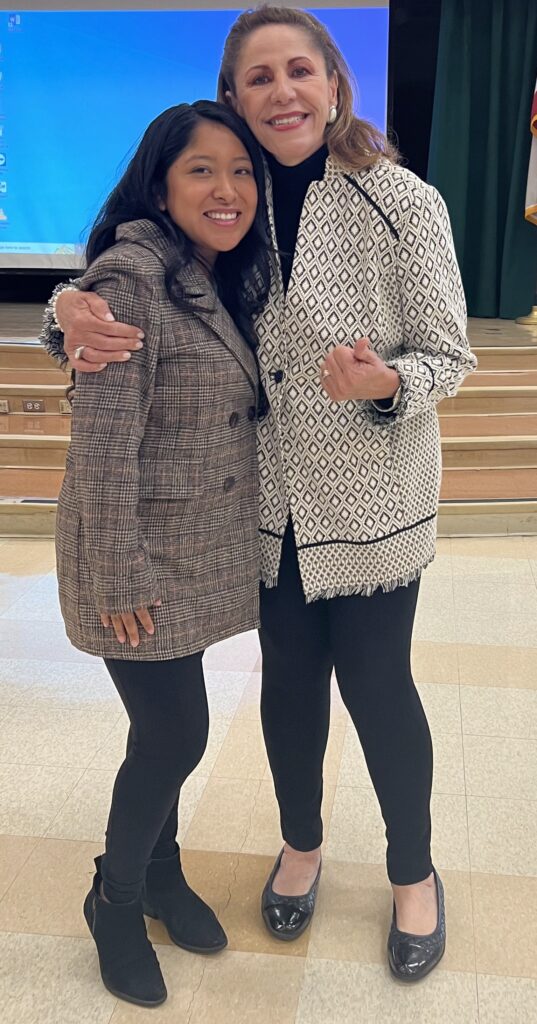
Mentoring
Dr. Villarreal told us that she is working with Itahi Arteaga, whose parents graduated from the workshops when she was little. “They’re both from Oaxaca, migrants. They’ve graduated three or four times from my workshops. She was a little girl when they came to them,” she told us.
Today, Itahi, is finishing her PhD in occupational therapy, with a thesis on how to help Latinos in the United States. She asked Dr. Villarreal if she could shadow her and learn from her. “In her presentation, she talks about how her parents put into practice everything they saw in my workshops and how she was the product of the workshops,” she said.
“From talking about their culture, having their true identity, being proudly Mexican, not losing their culture,” she said. She launched the Encinitas Día de Muertos celebration that is held every year in that city.



